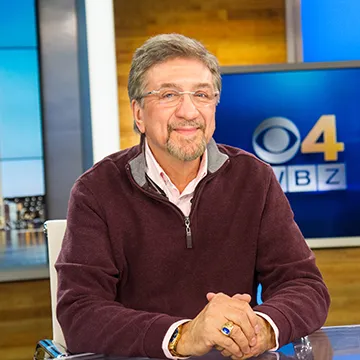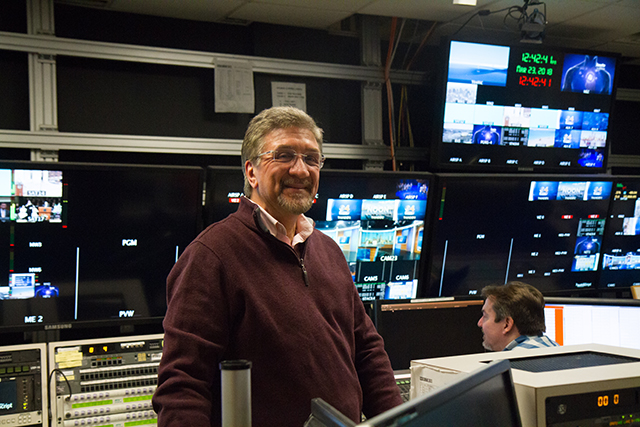A Lifelong Learner

Paul Pabis isn’t just a believer in lifelong learning, he’s an embodiment of it. Since earning a degree in electrical engineering from Roger Williams University in 1983, Pabis has come back twice to further his skills, knowledge and career opportunities. His most recent return, where he earned a master’s degree in leadership, has helped him take the next steps as a leader overseeing about 40 professionals at CBS Boston WBZ TV/WSBK TV.
“When I started, I was just a technology guy,” says Pabis, who started at CBS Boston 25 years ago. Now, as the network's director of broadcast operations and engineering, he is responsible for the team that oversees all the technical portions of the station outside of the news department. His team includes operators that work in the screen-filled master control room and production crews out broadcasting stories from the field.
So far, Pabis has been more than up to the task, but as a proponent of lifelong learning he is always looking for ways to improve and keep up to date with current methods, he says.

It’s why he decided to earn a degree in leadership.
“Businesses are changing,” Pabis says. “Technology is changing. People really have to stay current and relevant with the work they’re doing.”
His degree in leadership has helped him do just that. And because what he learned in the classroom was relevant to his role as a team leader, it helped him engage his employees and apply the learning from RWU to his workplace almost instantly.
“Anytime there was a management theory or a theory about how to teach or reorganize organizations, I’d bring that back here and try to incorporate that into what we were doing and get my people engaged,” Pabis says. “It’s a nice kind of laboratory to work and do school work.”
“I think the leadership program takes you that one step beyond a management program or business program. If you’re involved in disruption or organizational change or implementing new programs within your company and you want a good handle on that, then the leadership program is the way to go. It really helped me develop as a professional, as a leader.”
Perhaps the most impactful lessons from the program was the organizational leadership aspect of the program, Pabis says. It helped him align his viewpoints with that of the people he supervises.
“It gave me a different perspective on my employees,” Pabis says. “They may think differently than I do. They do in most cases, so I have to remember that. I have to ground my managerial style, my leadership, around their perspective.”
It’s something Pabis is continuing to pursue. Pabis is working on a doctor of education degree focusing on organizational leadership from Northeastern University.
Looking back at his journey of learning so far and where it's taken him, he says that “it’s all a result of Roger Williams University.”

